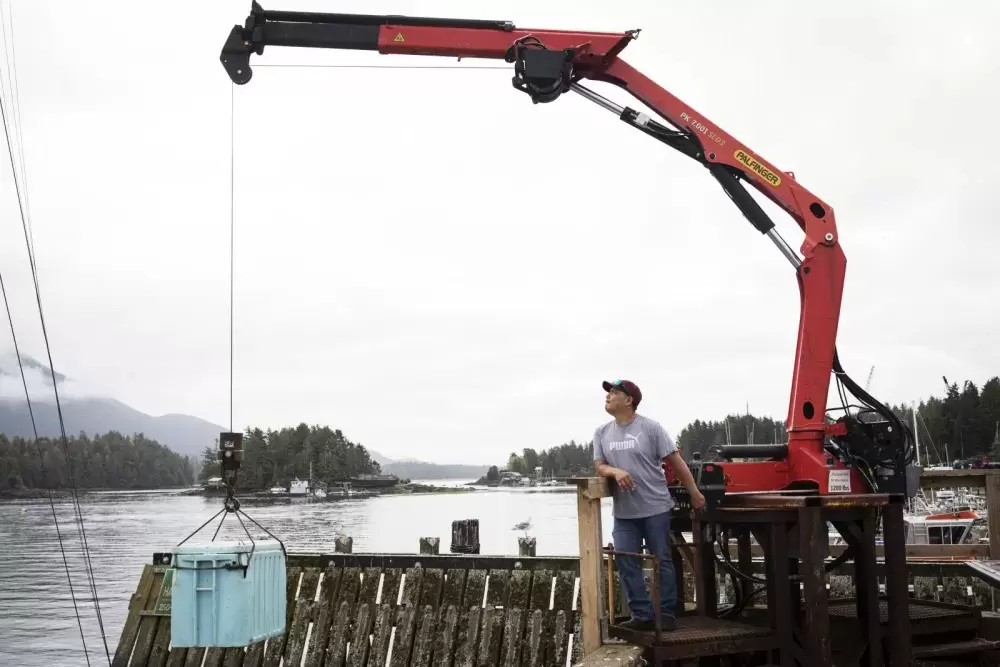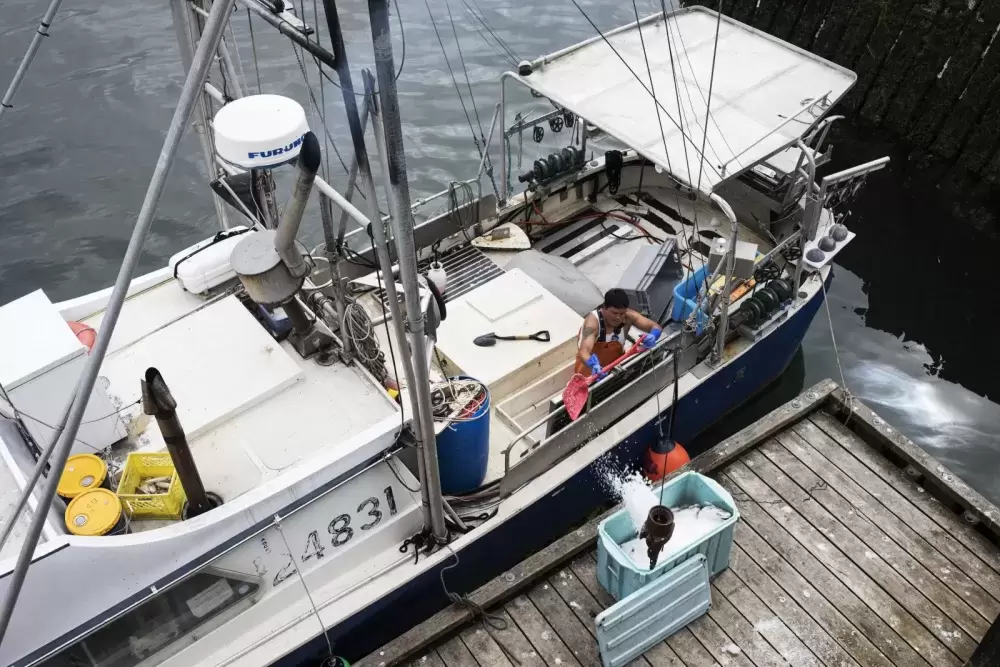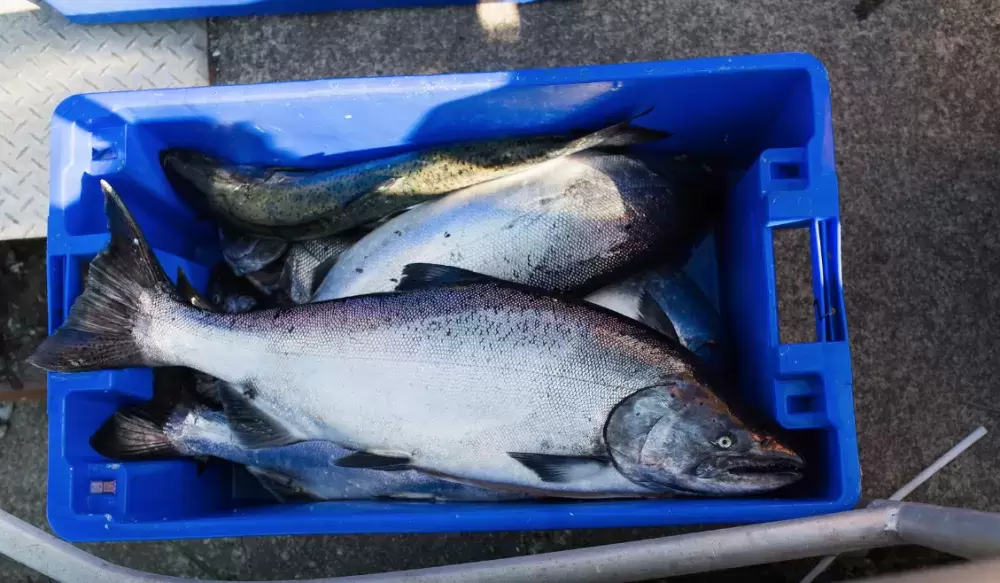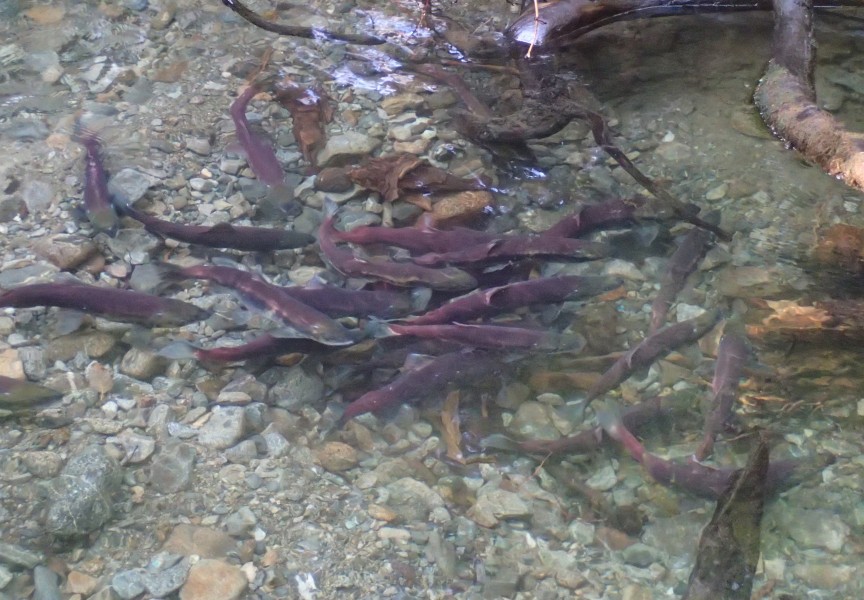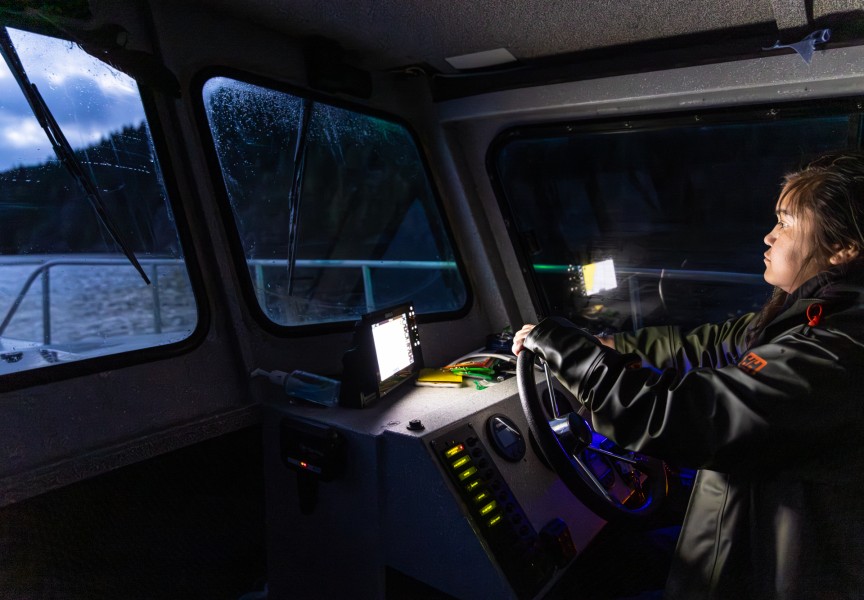DFO says it is moving swiftly to close 60 per cent of commercial salmon fisheries on the B.C. coast while consulting with First Nations on changes to communal-commercial licences as part of an all-out initiative to reverse steep declines of Pacific salmon.
Fisheries Minister Bernadette Jordan announced the harvest-based conservation measures Tuesday, June 29 as an initial step towards longer-term reductions in fishing pressure on threatened salmon stocks.
New data from the North Pacific Anadromous Fish Commission shows the global catch of Pacific salmon in 2020 was the lowest since 1982, the department said. The majority of B.C. stocks have been in decline — some by as much as 90 percent — with the exception of some pink and chum stocks.
“We are pulling the emergency brake to give these salmon populations the best chance of survival,” Jordan stated in a news release. “The decisions to implement new long-term closures and permanently removed effort from the commercial salmon fishery were not easy, as they impact people, communities and livelihoods. But with fewer and fewer returning every year — disappearing before our eyes — we have to act now.”
During a technical briefing that accompanied the announcement, DFO Pacific Region officials left no room for doubting the gravity of the situation or its primary cause: Climate change.
Globally, the last six years have been the hottest recorded, they noted coincidentally on a day when Lytton in the Fraser Canyon reached the warmest temperature ever in Canada, 49.5 C, and major wildfires erupted in the B.C. Interior and North.
Conclusions in the latest State of the Salmon report, produced annually by DFO Pacific Region scientists, was used as justification for the sweeping harvest transformation measures.
“Warmer air temperatures combined with other factors are contributing to river temperatures that are increasingly too warm for salmon in summer months,” the report states. “There are rivers where we see temperature exceeding 18-20 C in summer months, and for migrating adult salmon this can cause them to die before reaching their spawning grounds. Even if they do … migrating in these stressful conditions can also decrease the quality of the offspring they produce.”
Marine conditions don’t help, since the oceans have absorbed 90 per cent of the earth’s excess heat. An extreme heat wave in the Pacific that has come to be known as “the Blob” since it was first documented in 2013 remains a factor in 2021.
Salmon stocks may take several generations to stabilize and rebuild, resulting in profound impacts on harvesters, Jordan noted in launching DFO’s latest commercial buy-out strategy, the Pacific Salmon Commercial Transition Program. The voluntary salmon licence retirement program offers harvesters the option to retire their licences for fair market value.
Their goal is to radically downsize the West Coast commercial salmon fishing fleet. Seventy-nine of a 138 commercial fisheries overall will be closed indefinitely.
In response to PSSI, the commercial fishing industry has reminded DFO that it is responsible to harvesters as well as to salmon.
“There is no evidence of overfishing by the commercial fleet,” states the UFAWU-Unifor, the union representing commercial harvesters. “Rather, it is current policies combined with a lack of salmon that have created a crisis.”
Beyond the closures, fisheries that remain open may be able to proceed, but only on the basis of in-season test fisheries if numbers warrant and if risk to stocks of concern is considered low. Incidental catches of endangered stocks in mixed-stock fisheries is a guiding concern. Consultations with First Nations and commercial harvesters on long-term conservation measures will be held prior to the 2022 fishing season, the department stated.
For First Nations communal-commercial harvesters, DFO repeated its promise to meaningfully consult on options to shift to more selective fishing gear or, where available, to licences for other non-salmon species. There will be no impact of fishing the department classifies as food, social and ceremonial.
“These mitigation measures allow for continued economic opportunity agreements under the communal-commercial licence, while helping reduce interactions with at-risk stocks. Indigenous partners, harvesting groups and stakeholders have been calling for change,” DFO stated.
The department said it would be engaging immediately with First Nations, harvesters, industry members and partners across the Pacific region on the impacts of the commercial closures and the collaborative development of the mitigation program.
DFO said it intends to adopt a modernized commercial salmon management system as part of the Harvest Transformation pillar under the Pacific Salmon Strategic Initiative (PSSI). Jordan unveiled the $647-million initiative in early June, calling it the largest, most transformative investment ever made to save wild salmon.
PSSI’s Senior Director Sarah Murdoch gave an initial presentation to the Council of Ha'wiih Forum on Fisheries in early June. First Nations should be part of the planning for the fund from day one, not consulted with once plans have already been made, the Ha’wiih stressed.
The initiatives come, coincidentally, after DFO’s decision to not appeal the Ahousaht et al case on commercial fishery infringement. After more than two years of deliberation in the court saga, B.C. Court of Appeal ruled in favour of the Five Nations (Ahousaht, Ehattesaht, Hesquiaht, Mowachaht/Muchalaht and Tla-o-qui-aht), concluding that DFO had infringed on their right to a commercial fishery as proven in B.C. Supreme Court in 2009 – while overturning a previous ruling that narrowed the nations’ rights.
“We call on the DFO to come to the table immediately and begin dialogue with these Five Nations to determine sufficient allocations,” said Judith Sayers, Nuu-chah-nulth Tribal Council president. “It is past time to do so. Our fishermen have waited long enough to pursue their livelihood and the court has definitively ruled on this right. It is a sad reflection on Canada that they fought the Nuu-chah-nulth in court for 18 years instead of negotiating.”
NTC said it also expects DFO to negotiate fully and fairly with the Maa-nulth Nations — which have a “me too” clause in their final agreement regarding the results of this case — and with four Nuu-chah-nulth nations forced to withdraw from the court case due to overlapping territories.

